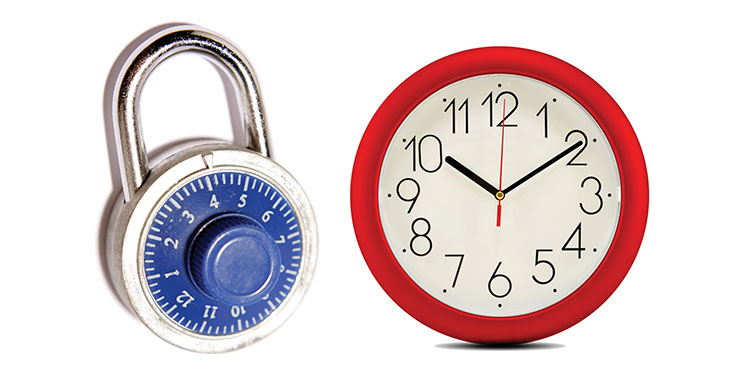K2: More Sticky Sounds
1. Overview
Add a consonant sound before an existing consonant sound at the beginning of a three-sound word to make a brand new word. This game is the same as Sticky Sounds, but it focuses on changing a three-sound word to a four-sound word by creating an initial consonant blend.
K2: More Sticky Sounds
2. Materials
- Script
- sound counting markers — you only need four of the markers for this game
- work mat
- word list
3. Activity
Video: How to play More Sticky Sounds
Start by explaining to your child the concept of the game. Put the sound counting markers and the work mat in front of him. He will use these markers to count the sounds in the words of this activity.
Remind him that we read words from left (the green circle, as in “go”) to right (the red triangle at the end of the arrow, as in “stop”). Have him use his index finger to trace the arrow from the green circle to the red triangle.
Adult: You can add a “sticky sound” to the beginning of a word that already has three or more sounds and make a longer word. Remember what we did in the last game: I’ll say a word, and you use the markers to count the sounds on this top line. Listen to my word: lock. “Lock the door when you leave the house.” What word? Child: Lock. Adult: Yes. Say the sounds in lock, and put a marker on the mat for each sound you say. Start here. [Point to green circle.] Child: /lll/ [places 1st marker] … /ooo/ [places 2nd marker] … /k/ [3rd marker] Adult: Good. You placed the sound markers in just the right order to make the word lock. Touch and say the sounds in order. Then say them fast to make your word. Child: lll-ooo-k [while touching markers] … lock.Now tell the child how to count the sounds in a second word by putting sound counting markers on the bottom line of the work mat.
Adult: I’m going to say another word, and you’re going to count the sounds again. If you hear a sound that you already used to make the word lock, move that sound marker down from that word. What was the first word? Child: Lock. Adult: Yes. Here’s my new word. Listen: block. “Put the block on top of the stack.” What word? Child: Block. Adult: Do you hear a new sound in block that you don’t hear in lock? Listen: bllloook • • llloook. Again: bllloook • • llloook. Child: Yes, there’s a /b-b-b/ sound! Adult: Is it at the beginning or the end of block? Say block and tell me where you hear the /b/ sound. Child: Block … at the beginning! Adult: Put a marker for /b/ at the start of the bottom line on the mat. Now say all the sounds in block and put them in order on the mat. Remember, if you need a sound marker that you already used for a sound in lock, pick up the marker from the top line and move it to the right place on the bottom line. Child: /lll/ … I used that in lock, so I move this marker down here next to /b/. Adult: Okay. What’s the next sound in block? Child: /ooo/. That was in lock too, so I can move this marker. Adult: What sound markers do you have so far for block? Child: This one is /b/, this one is /lll/, and this one is /ooo/. Adult: What sound do you still need to make block? Say the word and figure it out. Child: b-lll-ooo … I need /k-k-k/! Adult: Did you use the /k/ marker for one of the sounds in lock? Child: Yes. So I get to move the marker down to the bottom line. Adult: Good. Now touch and say the sounds in your new word, quickly. See if two of the sounds stick together when you say the word fast. Child: Block. Block. Yes! Adult: Which two sounds stick together when you say block? Blll • • ooo-k. Child: /b/ and /lll/!Explain that when /b/ and /lll/ are next to each other in a word, they are “sticky sounds.” They are almost glued together, they are so sticky! Once your child has successfully completed one round of the game, have him remove the sound counting marker from the mat before starting the next round. One session of this game should last 10-15 minutes, with you and your child covering 6-8 word pairs. Repeat these word pairs several times in random order within the session to give your child lots of practice. Be sure he has a good understanding of the use of two “sticky” consonant sounds to make a new word. ↑ Top
4. Confidence Builder
Reduce the number of words in a session, and repeat them randomly three or four times. ↑ Top5. Small Groups (2-5 children)
Lesson Objective: Using markers and a work mat as visual aids, children will hear a three-phoneme CVC word, use markers to count and order its phonemes, add a consonant phoneme to the beginning of the word, and blend the four phonemes together orally to create a new word with a consonant blend. GELDS (Georgia Early Learning & Development Standards): CLL6.4f (closest standard) Georgia Standards of Excellence: ELAGSEKRF2.e Common Core State Standards: CCSS.ELA-LITERACY.RF.K.2.E Additional Materials:- enough work mats and sound counting markers for each child
- optional: pocket chart (for displaying work mat and counters)
Leave a Reply

